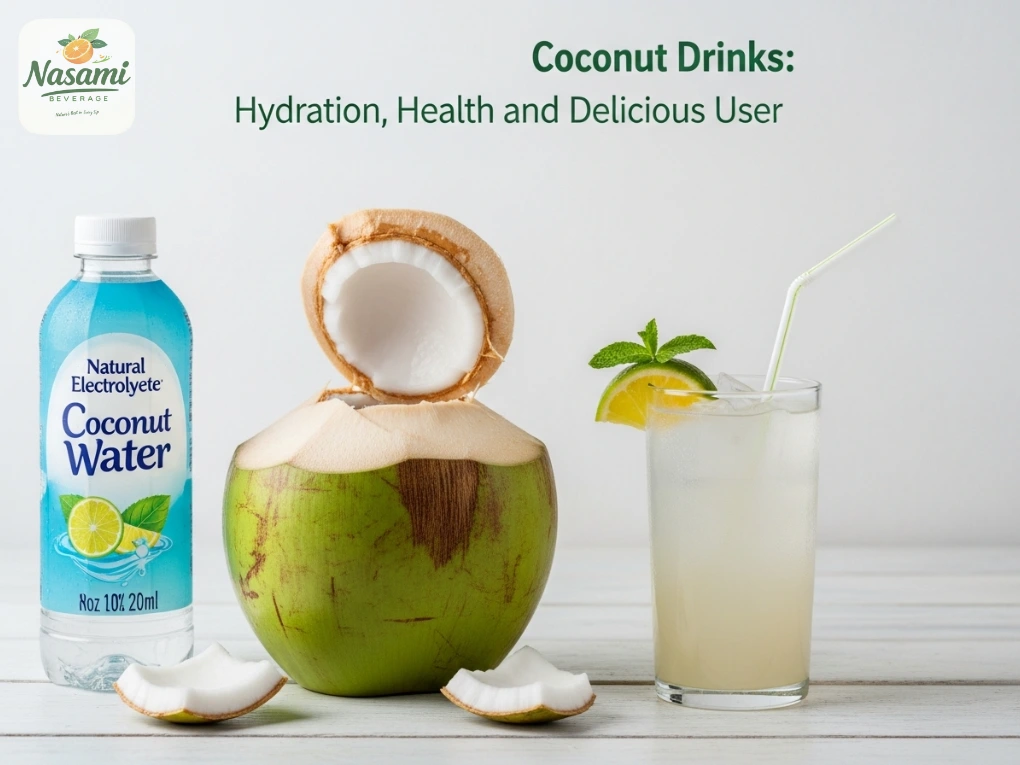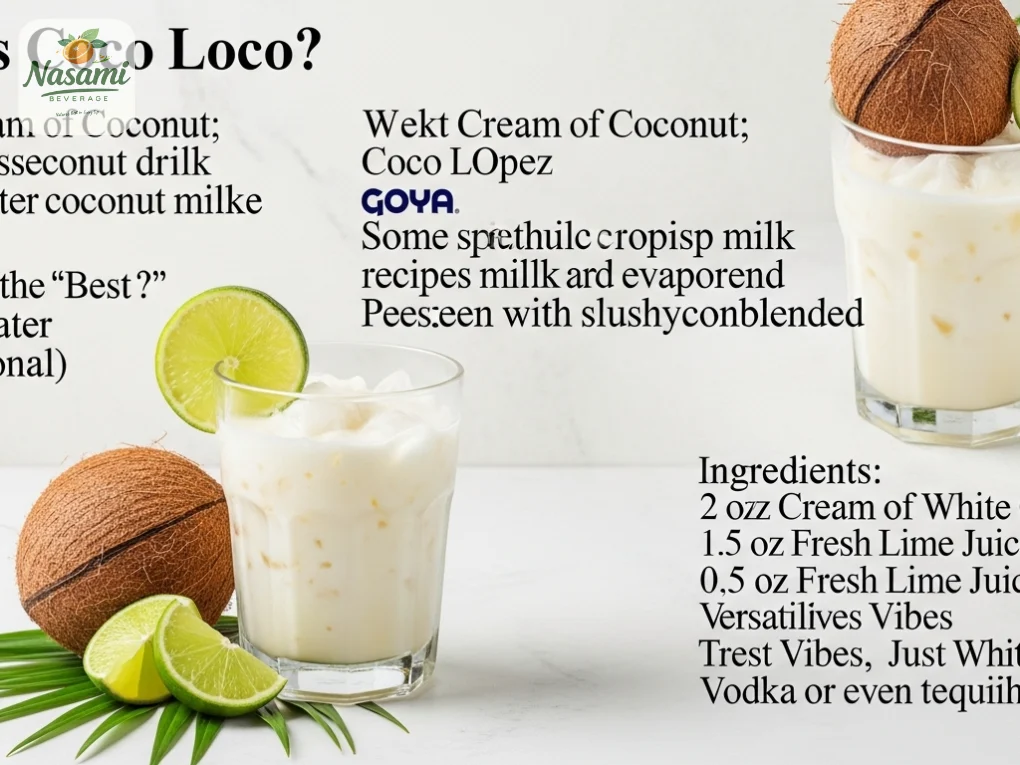Coconut Drinks
From the clear, refreshing liquid of young coconuts to the rich, creamy emulsions of mature fruit, coconut drink variations offer a diverse range of flavors and benefits.
Beyond their exotic appeal, these tropical beverages are packed with essential nutrients, making them a popular choice for hydration, culinary creativity, and overall well-being.
This comprehensive guide will explore the multifaceted world of coconut drinks, delving into their distinct forms, health advantages, versatile uses, and what to consider when choosing the best options for your lifestyle.
Disclaimer: This information is for educational purposes only and does not replace professional medical or veterinary advice. Always consult a qualified professional before making decisions related to your health or your pet’s health.
Decoding Coconut Drinks: Water vs. Milk vs. Cream
Understanding the differences between coconut water, milk, and cream is fundamental to appreciating their unique properties and applications.
While all originate from the same tropical fruit, they differ significantly in consistency, nutrient profile, and culinary role.
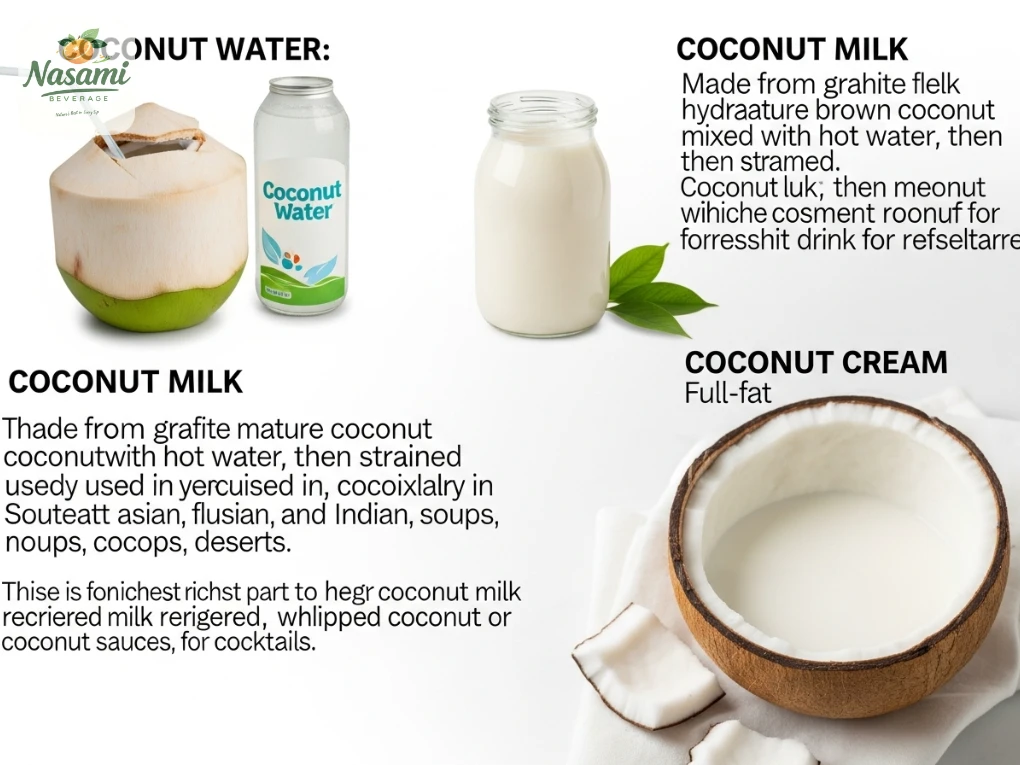
Coconut Water: Nature’s Electrolyte Drink
Coconut water is the clear liquid found inside young, green coconuts. It’s renowned for its naturally sweet and slightly nutty flavor, making it a highly refreshing and popular hydration drink.
Rich in natural electrolytes like potassium, magnesium, sodium, and calcium, it’s often hailed as a superior alternative to conventional sports drinks.
This makes it an ideal coconut drink for replenishing lost fluids and minerals after exercise or during hot weather.
Many fitness enthusiasts and health-conscious individuals are keen to buy coconut water to support their active lifestyles.
The varying coconut water brands each offer a unique taste profile, and exploring different options helps find your preferred choice.
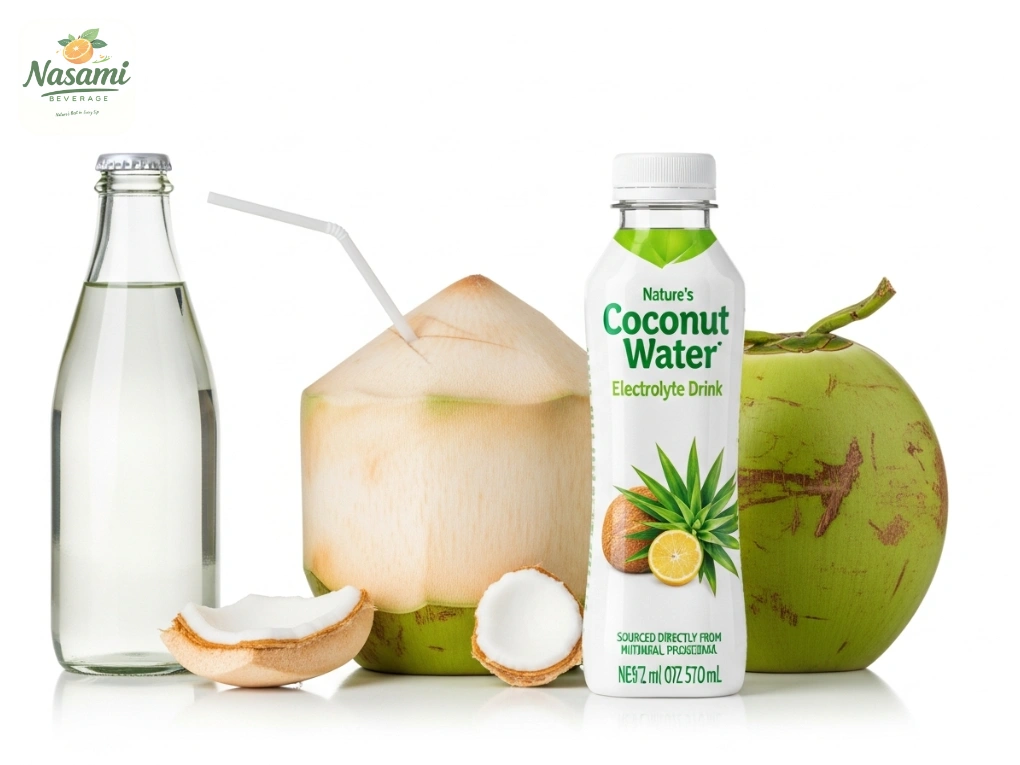
Coconut Milk: The Creamy Plant-Based Alternative
Derived from the grated flesh of mature coconuts, coconut milk is a thick, milky-white liquid. It’s produced by blending the grated coconut flesh with water and then straining it to separate the liquid.
As a plant-based drink, it has become a staple vegan milk alternative for those avoiding dairy, offering a rich texture and subtly sweet flavor.
Coconut milk is higher in healthy fats, including lauric acid, compared to coconut water, contributing to its creamy consistency.
It’s an essential ingredient in many cuisines and a fantastic base for smoothies, curries, and desserts. Finding the best coconut milk drink often depends on its intended use, with different fat contents available.
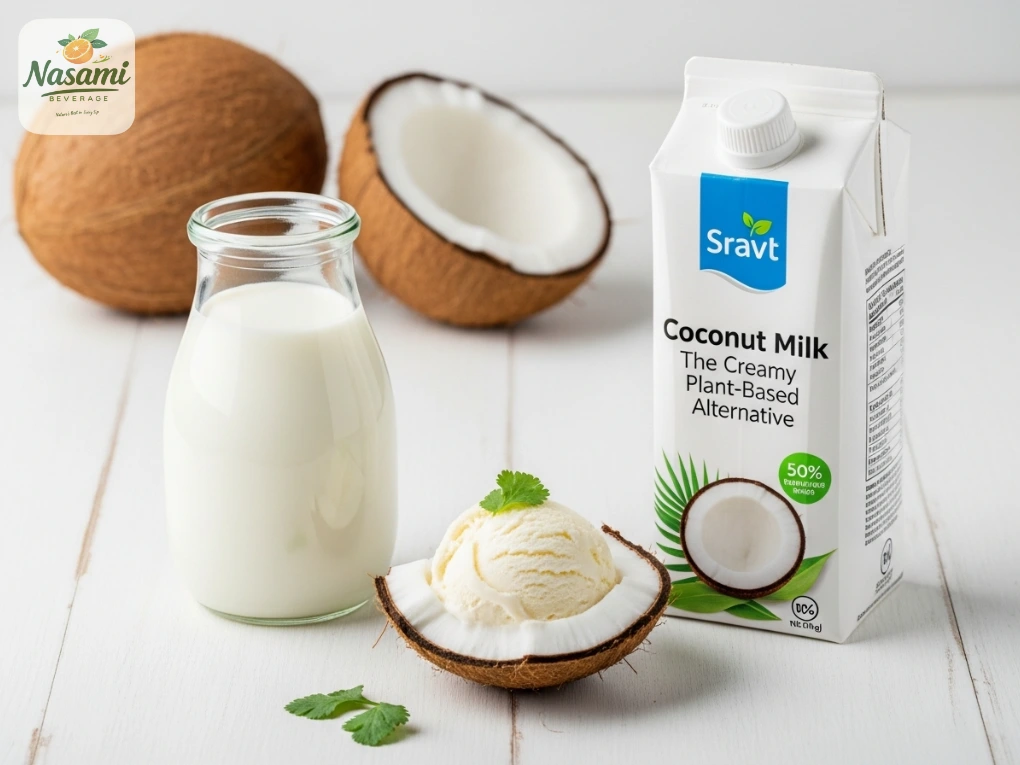
Coconut Cream: The Indulgent Cousin
Coconut cream is essentially a more concentrated version of coconut milk, containing less water and a higher fat content. It’s the thick, solid part that rises to the top of coconut milk when left to settle, or it can be specifically extracted for its rich, velvety texture.
This opulent coconut drink derivative is highly prized in cooking and baking for adding intense flavor and luxurious creaminess to dishes, often used in desserts, curries, and rich sauces. Its indulgent nature makes it a key ingredient for adding depth and richness.
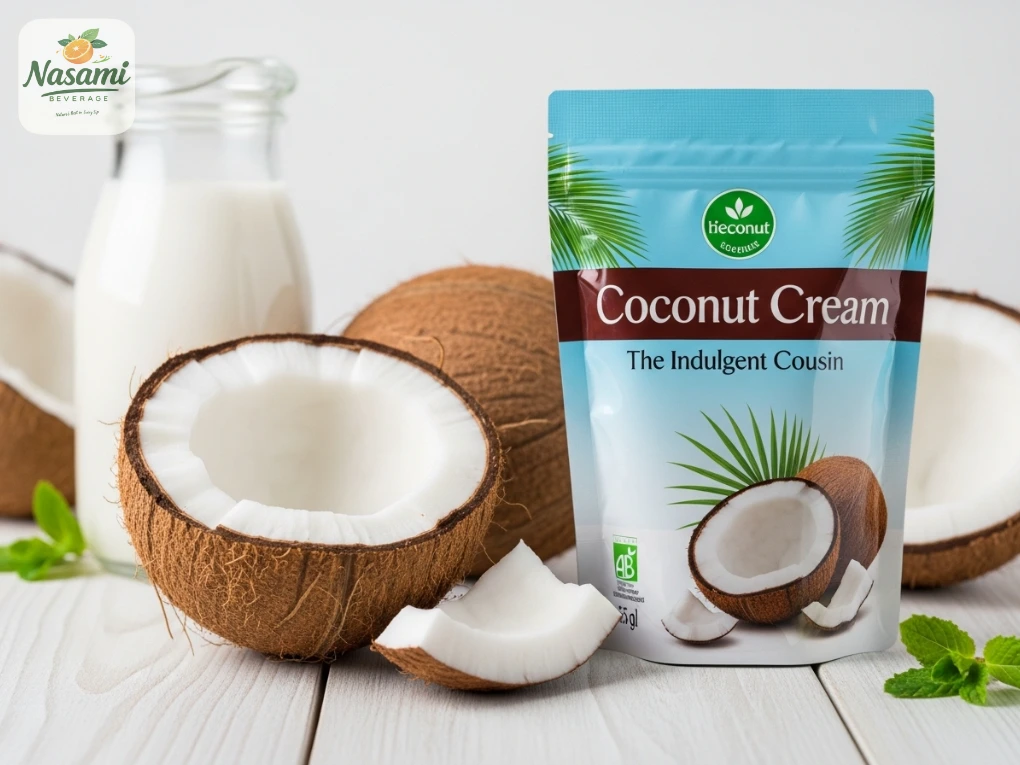
The Abundant Health Benefits of Coconut Drinks
The growing popularity of the coconut drink is not just about taste; it’s deeply rooted in its impressive nutritional profile and wide-ranging health benefits.
From aiding hydration to supporting various bodily functions, these tropical beverages are more than just a refreshing treat.
Superior Hydration and Electrolyte Replenishment
One of the most celebrated benefits of coconut water, in particular, is its exceptional ability to promote hydration.
Packed with natural electrolytes such as potassium, magnesium, and sodium, it effectively replenishes fluids and minerals lost through sweat, making it a prime choice for athletes and anyone needing a quick rehydration boost.
It serves as an excellent natural alternative to sugary sports drinks, offering critical nutrients without artificial additives.
Antioxidant Properties and Immune Support
Both coconut water and milk contain antioxidants that help combat oxidative stress in the body. These compounds protect cells from damage caused by free radicals, which can contribute to chronic diseases and aging.
Furthermore, coconut products contain cytokinins, plant hormones that have shown potential anti-aging and anti-cancer effects. The presence of lauric acid in coconut milk also contributes to immune support, known for its antimicrobial properties.
Digestive Health and Metabolism
Certain components found in a coconut drink can aid digestive health. Coconut water is light on the stomach and can help soothe an upset digestive system, while the fiber in coconut milk supports healthy bowel movements.
Medium-chain triglycerides (MCTs) found in coconut milk and cream can boost metabolism and provide a readily available energy source, potentially assisting in weight management.
Heart Health and Blood Pressure Regulation
Studies suggest that coconut water can play a role in regulating blood pressure due to its high potassium content, which helps balance sodium levels in the body.
Coconut milk, while higher in saturated fats, contains lauric acid, which some research indicates may help improve cholesterol levels by increasing beneficial HDL cholesterol.
This combination of nutrients makes a coconut drink a beneficial addition for heart health when consumed in moderation.
Skin, Hair, and Beauty Benefits
The hydrating properties of coconut water extend to skin health, promoting a natural glow and elasticity. Applied topically or consumed, its antioxidants can protect against environmental damage.
Coconut milk, rich in fats and vitamins, is a popular ingredient in natural beauty products, lauded for its moisturizing benefits for both skin and hair. Many people use it as a conditioner to add shine and strength to their locks.
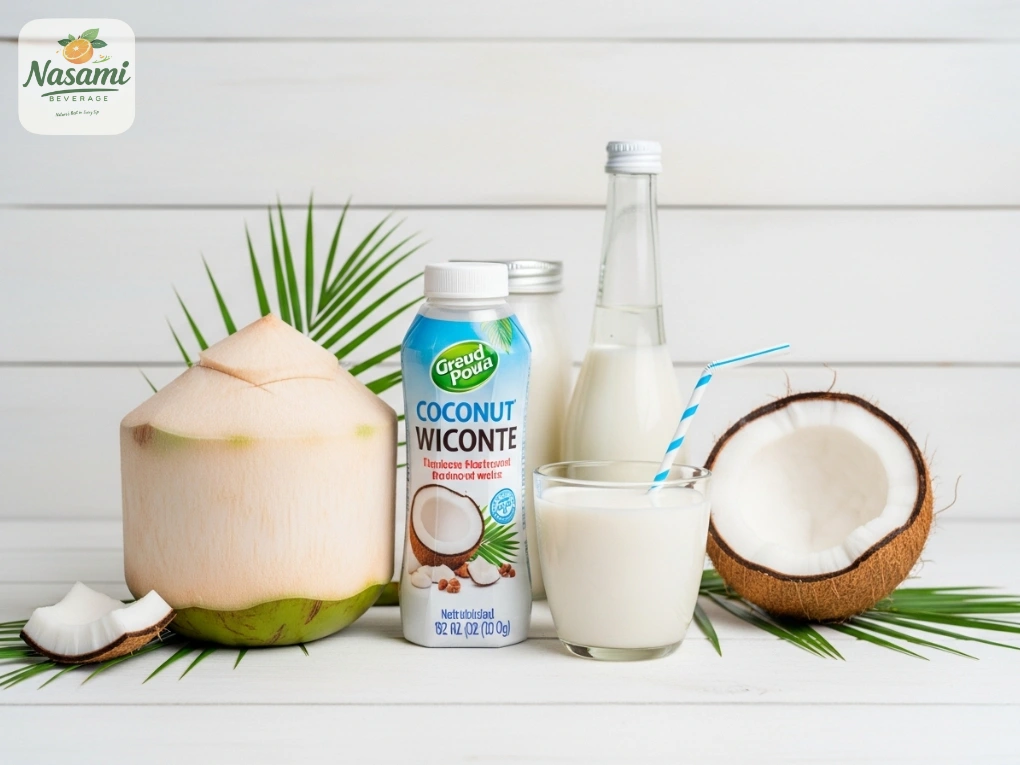
Creative Ways to Enjoy Coconut Drinks
The versatility of the coconut drink goes far beyond simply sipping it straight from the container. Its unique flavor profile and varied textures open up a world of culinary possibilities, from refreshing beverages to savory main courses.
Refreshing Beverages and Smoothies
Coconut water is a natural base for revitalizing drinks. Mix it with fresh fruit juices, a squeeze of lime, or a sprig of mint for an extra burst of flavor.
It’s also an excellent liquid base for smoothies, adding natural sweetness and electrolytes without overpowering other ingredients.
For a creamier texture, coconut milk can transform any smoothie into a rich, satisfying meal or snack. Imagine a tropical fruit smoothie with mango, pineapple, and a splash of coconut milk – pure bliss!
Culinary Applications (Especially Coconut Milk/Cream)
Coconut milk and cream are fundamental to many global cuisines, especially in Southeast Asian, Indian, and Caribbean dishes.
They form the base of rich curries, provide creaminess to soups, and add depth to stews. From chicken adobo to Thai green curry, the distinct flavor of a plant-based drink like coconut milk is irreplaceable. Even simple rice dishes can be elevated by cooking them in coconut milk for an aromatic and flavorful side.
Innovative Recipes and Homemade Ideas
Beyond traditional uses, a coconut drink can inspire countless innovative recipes. Use coconut milk to make dairy-free ice cream, puddings, or yogurts.
Coconut cream can be whipped into a vegan milk alternative for desserts, offering a delightful topping for pies and fruits.
Experiment with savory sauces, marinades, or even healthy salad dressings using these tropical ingredients. For those looking for fresh options, where to buy coconut water might mean visiting a local market for whole young coconuts.
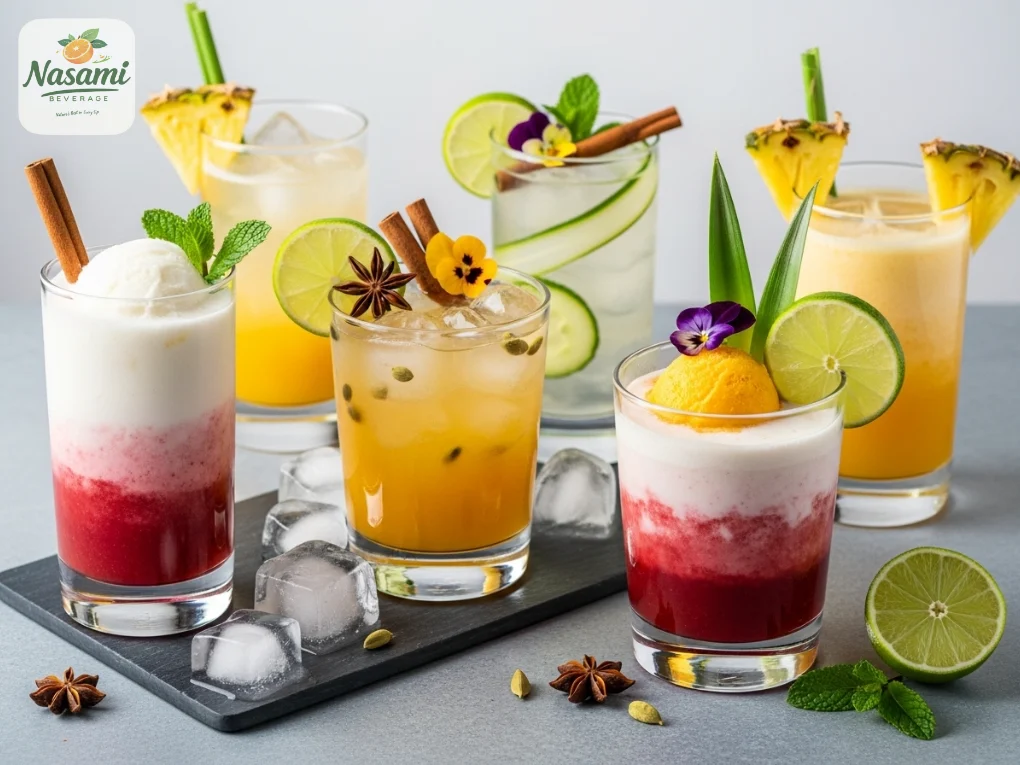
Choosing the Best Coconut Drink: What to Look For
With the market flooded with various coconut drink options, making an informed choice is crucial. Not all products are created equal, and understanding what to look for can significantly impact the health benefits and taste experience.
Reading Labels: Sugar Content, Additives, and Preservatives
Always check the ingredient list. The best coconut water should contain only 100% coconut water, without added sugars, artificial flavors, or preservatives. For coconut milk, look for brands with minimal ingredients – typically just coconut extract and water.
Many commercially available tropical beverages can contain hidden sugars, so be diligent in checking the “added sugars” content on the nutritional label to avoid unnecessary intake of natural sugars.
Organic vs. Conventional: Making an Informed Choice
Opting for an organic coconut beverage can ensure that the coconuts were grown without synthetic pesticides or fertilizers.
This choice supports sustainable farming practices and often guarantees a purer product free from chemical residues.
While conventional options are widely available, those prioritizing purity and environmental impact may prefer organic selections.
Packaging Matters: Tetra Pak, Cans, and Fresh Coconuts
The packaging can affect the freshness and shelf life of your coconut drink. Tetra Pak cartons and cans are popular for their convenience and ability to preserve freshness.
However, for the ultimate fresh experience, nothing beats opening a young, green coconut yourself. When exploring coconut water brands taste, consider how the packaging might influence the flavor profile. Always ensure the packaging is intact and free from damage.
Brand Reputation and Sourcing
Researching coconut water brands and their sourcing practices can provide peace of mind. Reputable brands often prioritize ethical and sustainable harvesting, ensuring fair wages for farmers and responsible environmental stewardship. Transparency in sourcing and manufacturing processes is a good indicator of a high-quality product.
Common Myths and FAQs About Coconut Drinks
Despite their popularity, several misconceptions about coconut drinks persist. Let’s demystify some common questions and myths surrounding these tropical treasures.
Is coconut water truly a ‘superfood’?
While incredibly nutritious and beneficial, the term “superfood” is often used loosely. Coconut water is indeed rich in electrolytes, minerals, and antioxidants, making it a powerhouse for hydration and overall health. It contributes significantly to a balanced diet, but like any food, it should be part of a diverse intake rather than relied upon as a sole miracle cure. It’s best thought of as a very beneficial, natural superfood component of a healthy lifestyle.
Can coconut milk replace dairy entirely?
Yes, for many, coconut milk serves as an excellent vegan milk alternative to dairy. It offers a creamy texture and versatile flavor profile, making it suitable for coffees, cereals, cooking, and baking. However, its nutritional composition differs from dairy milk (e.g., lower in calcium unless fortified), so it’s important to ensure you get essential nutrients from other sources if completely replacing dairy.
Is all coconut water the same?
Absolutely not. The taste and quality of coconut drink can vary significantly based on the variety of coconut, its maturity, the region it’s grown in, and how it’s processed. For example, young coconut water is typically sweeter and more abundant than that from a mature coconut. Processing methods can also impact the flavor, with pasteurization sometimes altering the delicate taste. Different coconut water brands taste noticeably different.
The Future of Coconut Drinks: Trends and Innovations
The market for coconut drink continues to evolve, with exciting innovations on the horizon. We’re seeing more functional coconut beverages infused with adaptogens, prebiotics for gut health, and botanical extracts.
Sustainable sourcing and eco-friendly packaging are becoming increasingly important, aligning with consumer demand for environmentally conscious products. Expect a wider array of flavors and convenient formats, catering to diverse tastes and lifestyles.
From the superior hydration provided by its natural electrolytes to the rich, plant-based drink versatility of its milk and cream, the coconut drink is undeniably a powerhouse.
It offers a wealth of health benefits, including antioxidants for immune support, properties that aid digestive health, and essential potassium for blood pressure regulation. Its applications are boundless, gracing everything from refreshing smoothies to gourmet culinary creations.
Don’t limit yourself to just one form of this tropical fruit. Explore the distinct charms of coconut water, coconut milk, and coconut cream.
Experiment with them in your daily routine – as a post-workout rehydrator, a dairy-free coffee creamer, or a foundational ingredient in your favorite curry. There’s a perfect coconut drink out there for every need and palate.
As you navigate the exciting world of coconut drink products, remember to choose wisely by scrutinizing labels, considering organic options, and prioritizing brands committed to quality and sustainable practices.
Stay hydrated, nourish your body with these natural nutrients, and savor the delightful, healthful goodness that the coconut offers. Discover your next favorite tropical beverage and elevate your wellness journey with NasamiBeverage’s premium selection.
Follow NasamiBeverage on social media
- Pinterest: pinterest.com/nasamibeverage/
- Youtube: @Nasamibeveragecom
